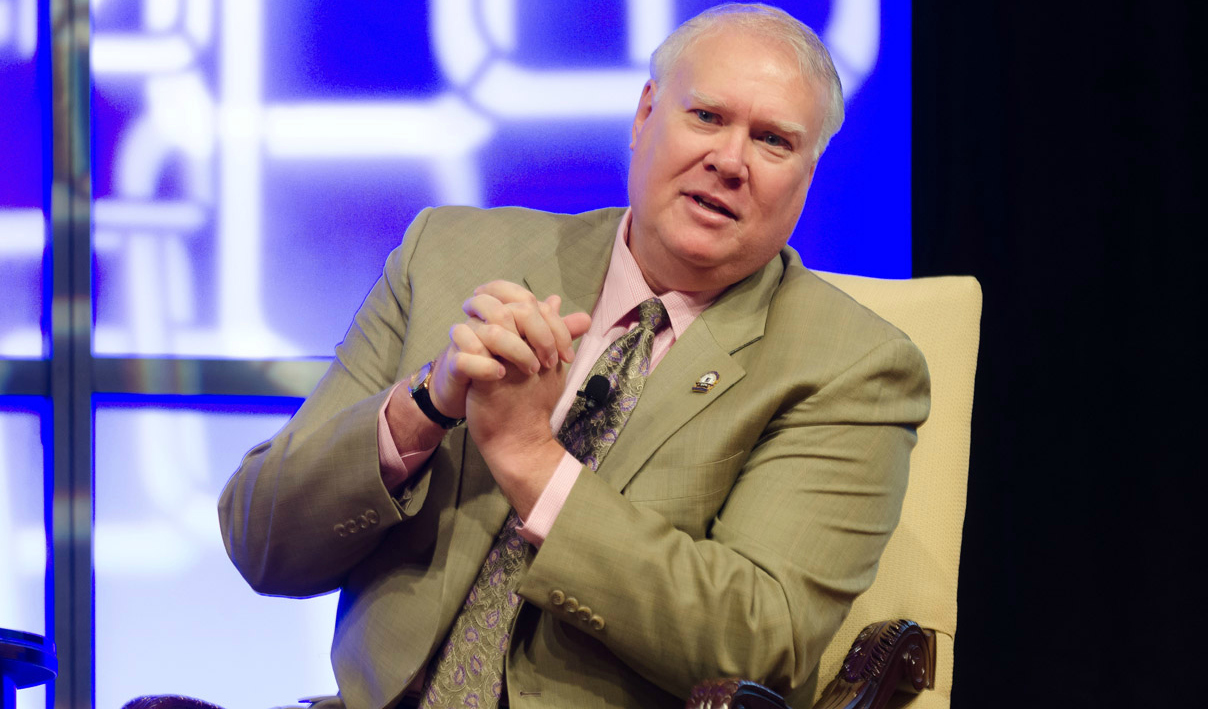
Dual agency in real estate
Buyer representation? Dual agency? NAR for heaven’s sake? Give me a break. Until I became a blogger I was both ignorant and apathetic about what opinions were held by others in the industry on those subjects. The only thing that has changed is the entertainment I sometimes enjoy while reading about them.
Keep in mind that most of these opinions are offered by agents who’ve never put together consecutive years of income equal to the national median. In fact, the vast majority of these pillars of agent ethics, according to their own association, earn far less than the national median.
In the 1960s and early 1970s I worked for a real estate firm sporting six offices and give or take 40 agents. About 65-75% of the agents were full time. In the two years I was the janitor and printer (mimeograph) of new listings, they closed over 1,000 transactions — over 2,000 ‘sides’ — 100% of which were dual agency sales. That same firm also escrowed the sales. Oh, the humanity! Furthermore, if one of their agents was caught showing another broker’s listings, he/she was fired on the spot. The company’s broker/owner didn’t cooperate with outside brokers – as policy. He refused to join the local board or the MLS. How could that work you ask? Simple, his company always had more listings under $20,000 (the magic number back then) than the entire MLS. He didn’t need them. They needed him.
And everyone knew it.
(Note: For the record, this broker didn’t employ nepotism very well either. Starting your son in the family business as the janitor for two years sends a pretty clear message, don’t you think? Dad was one of a kind.)
When inevitably the green monster of envy showed up in the form of an anonymous complaint to the DRE — bullies are almost always cowards too — he was unceremoniously audited within an inch of his life. It took three days. The auditor handed his card to the broker when he’d concluded his work, and said, “Mr. Brown, if you are contacted by the DRE about any broker’s complaint ever again, give me a call. Your files are the cleanest I’ve ever seen. If I ever decide to move, you will get my listing.”
It seems when the smoke cleared, integrity was what mattered. Integrity is the ultimate trump card.
I find it silly to even have to debate this subject, since most of the time it revolves around perception, not reality. Marketing deals with perception. Our behavior in the service of our clients must be more valuable than that. It must be real. Our clients must have faith in us and our integrity, not merely an ambiguous, often amorphous perception.
I work in the investment side of real estate. My clients invest to improve their retirement. A large part of my business is tax deferred exchanges. The consequences of a failed exchange can be ruinous in terms of capital gains taxes unintentionally caused.
Without boring you with tax law details, there are times in an exchange in which investors can be put at risk of owing capital gains taxes. If a transaction falls through at a critical point in the exchange, it can result in huge tax consequences, regardless of whose fault it was. In my experience this usually comes up when I’ve sold a client’s income property as the first stage of an exchange. There is a 45 day window from the time that sale closes in which the seller must ‘identify’ the property they will be exchanging into, using the equity/proceeds from the recently closed sale. If that property is listed by an outside broker who somehow causes the escrow to fall out, and the 45 days has passed – my client is rendered helpless. He can no longer take advantage of a tax deferred exchange, and will now owe whatever capital gains tax applies to that property.
The common denominator of these failures is the listing agent, virtually always a specialist in owner occupied housing.
This is why my clients PREFER to purchase properties I’ve listed. They know the other client is likely also exchanging for tax reasons and therefore equally motivated to perform. They also like that I’m in control of both sides.
Wait, it gets better.
I tell my clients, in writing, that if I sell their property myself it’s virtually guaranteed to be at a lower price than if another broker from the MLS brought their buyer to the table. Now this is where the chorus chimes in – “That’s at least the perception of evil! This is why dual agency is so wrong.” Blah blah blah, yadda yadda yadda. The next question is why sell for a little less, right? I’m glad you asked.
90% of the properties I sell for my clients are 1-4 unit rentals. Most of the buyers are represented by agents who couldn’t find their backsides with two guides, a map, and a GPS when it comes to income property. Their agents allow them to pay more than my clients would. (I’m with this when there’s no exchange involved, as who doesn’t like a higher price.) My clients make the decision to sell for a tad less, (usually 1-3%) because of the peace of mind they have knowing the sale, and therefore the tax deferred excchange is going to conclude successfully. Paying $50-100,000 in capital gains taxes because some house agent wannabe decides to dabble in investments isn’t worth getting $10,000 more for their property.
And for the record, I charge six percent — period. Of course, all this is disclosed to the max. I usually end up introducing the clients to each other, and some have become friends. They all have a signed, written disclosure by me on my letterhead, making my relationship with all parties nakedly transparent. One of the common denominators that makes this attractive to my clients is the knowledge that they’re buying property that hasn’t been broadcast to the public. They don’t have to compete with other buyers, making it even more of a seamless transaction. And the sellers prefer this approach for the above mentioned reasons. (I’ve always been told repetition is the best teacher.)
When I’ve given ‘mini-seminars’ in their homes, attended by their friends, neighbors, and family, it’s more likely than not that they’ve actually invited another client of mine to attend. It’s pretty effective when investors hear from satisfied clients that dual agency is sometimes the way to go. This is especially true when some of the attendees have experienced exchanges gone sideways due to an outside house broker’s poor performance.
However, now that my operation is national, not local in scope, I hafta deal with these wannabes regularly. The silver lining is that even if the sale of the original property in the exchange falls through, they’ve not yet incurred tax consequences. Since I advise/consult with the sellers of the properties they’ll eventually acquire, their safety remains assured.
Ultimately the reasons my clients do business with me is the same reason your clients do business with you: You offer solid value, expertise, and results. You operate with INTEGRITY. My clients come to me because they want to increase net worth, retire as soon as possible, and with as much tax sheltered or tax free income as they can possibly create. I strive to give them just that.
Dual agency is a non-issue debated by folks who are either jealous or, to give them the benefit of the doubt, afraid of what others might think of them. I have no problem with those who disagree with me and avoid dual agency as policy. In fact I admire them for walking their talk. I think most of them are sincere in their beliefs.
I just think they’re sincerely mistaken. Integrity should always triumph over perception. When perception wins, we all lose. Perception is too often a bully who doesn’t have anything else to say, so the issue is framed by how it might appear. To those who are on the fence, I say, grow a pair. Look others in the eye and stand on the platform of your integrity.
Dual agency is simply not an issue worth of all this drama. Here are the usual 4 arguments brought forward.
1. The client has the potential to be injured by an agent who isn’t an angel.
If this is accepted universally then we must repeal the law of gravity. It also is employed daily by those not possessing either wings or a halo. This belief requires all agency to be eliminated due to the potential for abuse.
2. If he is the listing agent he can’t compose a low ball offer.
What, your forms software won’t work? There is no ethical prohibition to making low ball offers if the buyer insists on it, even if you’re also the listing agent. That offer doesn’t make you unethical, it makes you an agent. A seller can turn it down as he pleases, just as if he was represented by another agent. In fact, I’d be telling my client that his low ball offer will be turned down — due to my advice to the seller. 🙂 The seller’s already been told by me, verbally and in writing, that the ultimate sales price WILL BE lower than the buyer wasn’t also my client. They’ve made a totally informed decision to go with that scenario. (Just not low ball.) They know I won’t allow a stoopid low sales price, AS DOES MY BUYER CLIENT. They both know the story from beginning to end, and have opted in voluntarily.
3. If dual agency can ever be abused via bad agent intent, then it is universally a bad idea.
By that definition all agency is a bad idea as it can all be abused by bad intent. Using that approach, marriage is a bad idea. Government is a bad idea. Baby sitting is a bad idea. Only those unable to think for themselves buy into that school of thought.
4. The perception of the public favors an agent who refuses to participate in dual agency.
I’ve been hearing this since Nixon was in office, and apparently missed that tsunami of negative public opinion. Yet how many past clients refuse to do business with huge teams whose volume each year consists of 10-25% dual agency? I personally know a highly successful team leader in another state who listed and sold an attorney’s home himself. The attorney came to him to list the property with full knowledge it could result in a dual agency sale. The final false premise is that I must ‘persuade’ you that dual agency is universally good rather than evil. Shame on me for accepting that in the first place.
Nobody’s ever proved to me that dual agency is inherently injurious to our clients. What folks have said is it has the potential to be. I have the potential to be an escrow officer but haven chosen to eschew that path. An argument against dual agency based on the potential for agent abuse, or the public’s perception, or that it sometimes results in unethical behavior, is doomed to failure. We all choose to behave and conduct business ethically and with OldSchool integrity, or we don’t. The real laugher is that an agent behaves ethically during single agency deals, but misbehaves during dual agency. Really? You’re hangin’ your hat on that? You’re embarrassing yourself.
As for the public’s outcry on this subject, I’m deafened by the silence.
This coming October will mark my 44th anniversary in the business. I’ve heard this dual agency ‘debate’ since I was 18. Yet, the public hasn’t cared a whit. It’s almost always the PC bully crowd makin’ most of the noise.
Please put forward an argument which logically stands alone. As you have noticed by now, I won’t defend my position based upon the potential for evil. Angelic behavior is not a requirement to make a living in real estate. Integrity and ethically based behavior is. Bad behavior is punished. The drunk driver is punished, but you and I aren’t prohibited from drinking because of the drunk driver’s sin.
Ayn Rand said it best: If the results you wish continually fail to materialize – check your premises.
The public simply never has, isn’t, and likely won’t buy your irrational reasoning. They’re far more interested in getting results.
Jeff Brown specializes in real estate investment for retirement, has practiced real estate for over 40 years and is a veteran of over 200 tax deferred exchanges, many multi-state. Brown is a second generation broker and works daily with the third generation. With CCIM training and decades of hands on experience, Brown's expertise is highly sought after, some of which he shares on his real estate investing blog.









































Miriam Bernstein
July 15, 2013 at 8:35 am
The correct title for this piece should be “why old timers in real estate don’t care about dual agency” because some consumers do care. That is not to say in your particular business it doesn’t work perfectly; more like commercial transaction which are strictly business – emotion removed. Dual agency laws are different state to state and what is and isn’t allowable can make a difference…In New York for example the Broker designates a buyer’s agent and a seller’s agent who can “advocate” for their consumers also works….I personally don’t like it because I prefer that each party have an advocate who can advise them as issues come up which can’t be done in Dual Agency….not so simple.
BawldGuy
July 15, 2013 at 5:37 pm
Sorry you felt it necessary to get personal, Miriam. Try this out. Since the 21st century began, clearly in the internet era, my firm has closed 8 figures of dual agency transactions. The median age of my clients is under 45. Fully 20% of them are in their 20s and 30s. Guess they didn’t get your memo.
Miriam Bernstein
July 16, 2013 at 9:55 am
I’m an old timer too, so didn’t think it was “personal” in a negative way. I started working as a sub agent and we knew nothing of dual agency. I have found that us “old timers” have a different view about dual agency at times than agents who haven’t experienced the way it was. I sometimes think they should just go back 20 years as this is all so complicated for consumers –
BawldGuy
July 16, 2013 at 2:04 pm
I apologize, Miriam. I, maybe as you do at times, get tired of folks sayin’ that something in principle has changed. Principles simply don’t change. I think Ms. Lussier said it best. When there is no slight of hand, everything is open to sunlight, trust is created. Once trust exists, I’ve not seen them care. Oh, and for the record, my first 7 years were listing and selling owner occupied homes. Never had a complaint about dual agency in those years either.
Again, I’m sorry for taking your comment the wrong way. My bad.
Hank Miller
July 15, 2013 at 9:59 am
A few good points but Miriam makes a very good one regarding emotion. I’ve been doing this since ’89 and every agent worth their salt has an example or one hundred of where a client removed the data and common sense from a transaction and acted solely on emotion. With the availability of data over the last several years, everyone is an “expert” and I’ve seen many instances where good, ethical agents have been skewered in dual agency. Unreliable data (most any public site), emotion, suspicion, the home buying process in general and angst make dual agency a potential disaster. I much prefer to hand an unrepresented client to my managing broker for assignment, the risk of an issue isn’t worth it to me – perception is reality in many minds when things “go wrong” for someone.
Commercial and income properties tend to be more data centric, I don’t see the risk/reward equation being favorable in the current environment. I’m just fine representing one client in a transaction. Now as far as the bully and extortion tactics of the MLS organizations, don’t even get me started.
Jonathan Dalton
July 15, 2013 at 6:31 pm
* watches BawldGuy drop the mike and leave *
BawldGuy
July 15, 2013 at 11:00 pm
Exactamundo.
Jonathan Dalton
July 15, 2013 at 6:36 pm
> With the availability of data over the last several years, everyone is an “expert” and I’ve seen many instances where good, ethical agents have been skewered in dual agency. Unreliable data (most any public site) … make dual agency a potential disaster.
If the agent’s data is correct, then why would they be skewered?
Jeff works the investment side so emotion ain’t part of the deal. Having said that, arguments about the emotion go back to the perception. If I have even the slightest concern that one side or the other is concerned about me working both sides, I don’t do it. Call it common sense. Call it CYA to the max. Whatever it is, it works. So far, though, it’s been raised as an issue by less than 1 percent of my clients in my nine years in.
If you’re that worries about perception, given what most of the public thinks, you’re in the wrong business. Me and the man in the mirror, however, rest east because we know what we’re doing.
franklyrealty
July 15, 2013 at 9:09 pm
Was my comment removed?
franklyrealty
July 16, 2013 at 11:42 am
Thank you for an example where Dual Agency might work. I have also heard it from a horse expert that said that being a specialist in Horse Farms makes things go more smoothly, whereas a random agent will guarantee problems.
The post was confusing however since it isn’t clear which “client” you are referring to at times. Maybe edit the post and always say “buyer client” or “seller client.”
That being said, there was one thing I was looking for in your in your post. And that is advice and how it is given when both sides are your client. And I found it when you said “I’d be telling my [buyer] client that his low ball offer will be turned down — due to my advice to the seller [client].”
Exactly what advice are you giving? The drawback of dual agency that you didn’t discuss (and most articles miss) and is my main gripe is that the agent becomes an overpaid paperpusher. They can’t give advice to either side (for most negotiation matters).
So when the listing is $500k and your buyer offers $490k, do you give advice? To go higher or lower? And when you take that offer over to the seller, do you say “I think you should hold out for more, or this is good, you should take it.”
My understanding of dual agency, and I could be wrong, is that you have to work the contract, not the clients. You can’t give advice to either side that might in the slightest effect the other side. Hence a glorified paper pusher.
Do you give offer and counter offer advice?
Frank LL0SA Esq
Broker Md VA DC
Attorney only in NJ
Theresa Lussier
July 16, 2013 at 12:31 pm
I don’t believe they don’t “care”. I do think they don’t mind.
>>They all have a signed, written disclosure by me on my letterhead, making my relationship with all parties nakedly transparent.
Which makes it their decision, Jeff, and that is the difference. As long as they know upfront what is going on, they are okay with it, but if it’s not disclosed upfront, they do not like it one bit. I’ve had buyers come from other agents who showed them their own listings and never once brought up dual agency. Believe me, they care, they just want it disclosed at the beginning. It’s about trust…
BawldGuy
July 16, 2013 at 1:59 pm
I think that statement is accurate, Mark. On the other hand, who has more on the line, emotions aside? Again, I agree with your statement.